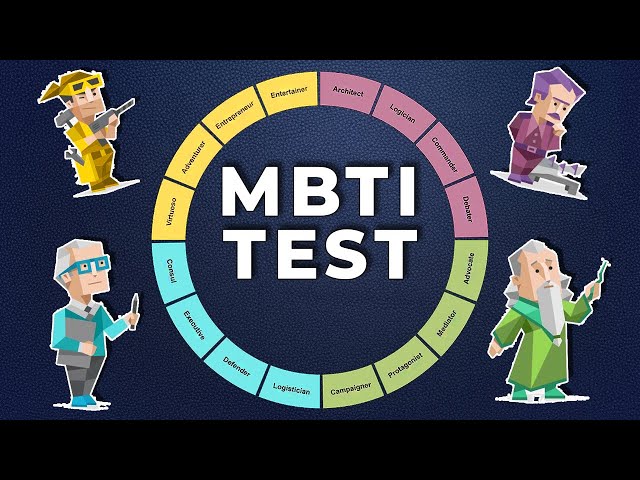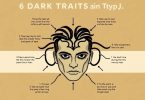What Is the Myers-Briggs Type Indicator (MBTI)?
The Myers-Briggs Type Indicator (MBTI) is an introspective, self-report questionnaire that identifies differing psychological preferences in how people perceive the world and make decisions. The core principle of MBTI is that much of human behavior, which may seem random, is actually highly organized and consistent.
Take the Personality Test
Take our Personality Test by choosing one option for each question to discover which of the 16 personality types you are and why you do things the way you do. Let’s begin with the MBTI Personality Test!
Question 1: Introvert or Extrovert
Understanding Introversion and Extroversion
Every individual has two faces: one is Introverted (I), and the other is Extroverted (E). The Extroverted (E) side focuses on the outer world of events, thrills, people, and objects. The Introverted (I) side focuses inward on thoughts, interests, ideas, and imagination. While these two aspects are distinct yet complementary, most people have an inbuilt preference for drawing energy from either the outer or inner world. As a result, either the Extroverted (E) or Introverted (I) side takes the lead in shaping their personality and behavior.
Question 1
Do you get your energy from within, through your own activities and thoughts (Introvert), or from interacting with the world around you (Extrovert)?
If You Chose Introvert (I)
These statements should apply to you:
- I enjoy engaging with thoughts, images, memories, and feelings in my inner world, as they energize me.
- I prefer working alone or with one or two other people.
- I pause to think before acting, ensuring I know exactly what I’ll do.
- For me, ideas are almost tangible objects.
- Sometimes, I prefer the concept of something over the actual item.
If You Chose Extrovert (E)
These statements should apply to you:
- I enjoy participating in events and engaging in various activities to stay energized.
- Being with people excites me, and I enjoy energizing others.
- I take initiative and drive change.
- I generally feel comfortable in most environments.
- Discussing a subject aloud and hearing others’ perspectives helps me understand it better.
Question 2: Intuitive or Sensing
Understanding Intuition and Sensing
The Intuitive (N) side of our brain seeks to make sense of information by interpreting it and forming overall patterns. It explores possibilities, speculates, and predicts the future, being conceptual and imaginative. The Sensing (S) side focuses on the sensory elements of the present, such as sights, sounds, and smells. It classifies, arranges, documents, and stores details of the present, grounded in reality and dealing with “what is.” It also provides specific information about memories and past events. While everyone uses both types of perception, we naturally lean toward one.
Question 2
Does your information preferably come from explanation, reasoning, and abstract understanding (Intuition), or from observing, measuring, and experience (Sensing)?
If You Chose Intuitive (N)
These statements should apply to you:
- I focus on first impressions, meanings, and patterns in the information I receive.
- I prefer learning by carefully considering a subject rather than getting hands-on.
- I’m curious about new things and possibilities, thinking more about the future than the past.
- I enjoy working with symbols or abstract theories, even if I don’t know how I’ll use them.
- I remember events more as impressions of how they felt rather than specific details.
If You Chose Sensing (S)
These statements should apply to you:
- I focus on the senses: sight, hearing, touch, taste, and smell.
- I’m concerned with what is actual, present, current, and real.
- I notice and retain significant details.
- I prefer practical applications and learn best by putting knowledge into practice.
- Experience convinces me more than words ever could.
Question 3: Thinking or Feeling
Understanding Thinking and Feeling
The Thinking (T) side of our brain conducts detached, objective analysis of data, making methodical deductions from factual premises. It’s how we reason logically. The Feeling (F) side makes judgments based on likes, dislikes, effects on others, and human or aesthetic values, being inherently subjective. While everyone uses both methods, we naturally favor one, which acts as the tiebreaker when they conflict.
Question 3
How do you make decisions: through reason, logic, and given criteria (Thinking), or by considering context, interests, and what feels right (Feeling)?
If You Chose Thinking (T)
These statements should apply to you:
- I seek the fundamental truth or principle to guide decisions, regardless of circumstances.
- I weigh pros and cons to ensure consistency and rationality.
- I strive to remain impartial, unaffected by my own or others’ desires.
- I enjoy technical and scientific fields where logic is key.
- I may be seen as task-oriented, uncaring, or indifferent.
If You Chose Feeling (F)
These statements should apply to you:
- I make decisions by considering what people care about and the perspectives of those involved.
- I value harmony and take actions to promote or maintain it.
- I come across as kind, considerate, and compassionate.
- I’m concerned about harmony and feel uneasy when it’s absent.
- Others may see me as too idealistic, overly emotional, or indirect.
Question 4: Judging or Prospecting
Understanding Judging and Prospecting
The Judging (J) style focuses on organizing one’s surroundings, being prepared, making decisions, and completing tasks. It approaches the outer world with a plan. The Prospecting (P) style is adaptable, flexible, open-ended, and responsive to new opportunities and changing plans, taking the outer world as it comes. While we all use judging (thinking and feeling) and perceiving (sensing and intuition) processes to organize our lives, one—either Judging or Prospecting—tends to dominate our interaction with the outside world.
Question 4
How do you approach situations: do you prefer things to go as planned (Judging), or are you flexible and open to change (Prospecting)?
If You Chose Judging (J)
These statements should apply to you:
- I make decisions in my outer life based on my preference (Thinking or Feeling).
- Others may see me as preferring a planned, orderly lifestyle, valuing stability and organization.
- I find decision-making comfortable and strive to keep life under control.
- I plan work to avoid rushing before deadlines.
- Sometimes, I focus so much on the goal that I miss new information.
If You Chose Prospecting (P)
These statements should apply to you:
- I use my perceiving function (Sensing or Intuition) in my external life.
- Others may see me as favoring a flexible, spontaneous lifestyle.
- I prefer to understand and adapt to the world rather than organize it.
- I’m receptive to new insights and knowledge.
- I stay open to respond to whatever happens.
Dive Deeper Into Your Personality
Discover Your Personality Type
Congratulations! If you’ve answered all four questions, you now know your personality type! It’s time to dive deeper into your personality, learn about your traits, and discover how to use them to enhance your soft skills and achieve personal growth.







Leave a Comment